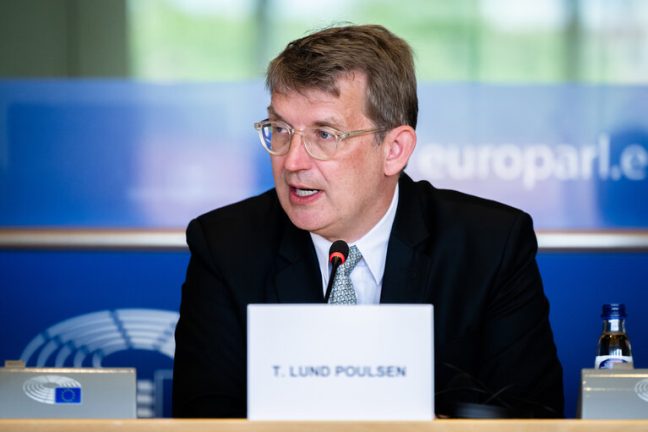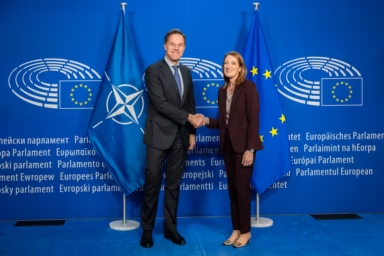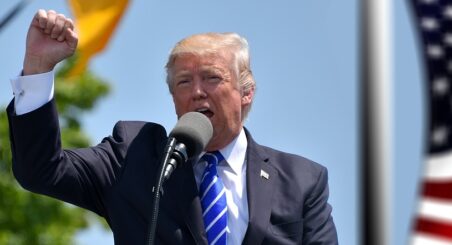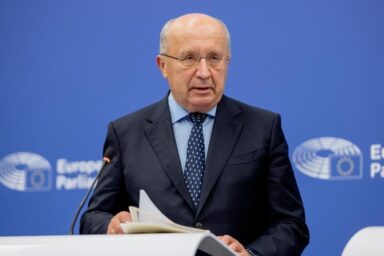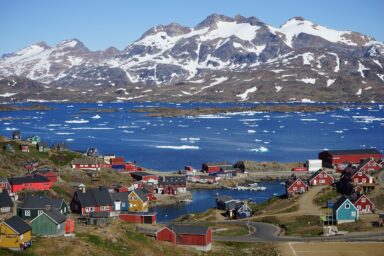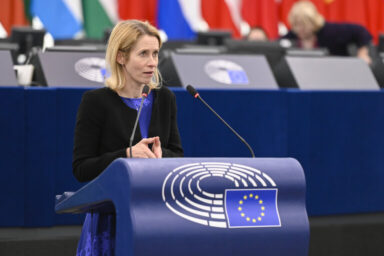Ukraine’s defence production should become more integrated into Europe’s defence industry, stressed Troels Lund Poulsen, Danish defence minister, on Wednesday, 16 July. The Parliament’s defence committee applauded Radmila Shekerinska, Nato Deputy Secretary General, for her words that “whenever NATO and EU work together, good things happen”.
Troels Lund Poulsen, Danish Deputy Prime Minister and Minister of Defence, attended the meeting of the European Parliament’s Committee on Security and Defence (SEDE) on Wednesday, 16 July in order to present his country’s priorities in the area of the EU security and defence.
Copenhagen’s role is seen as crucial by many MEPs. “The Danish model stands as a powerful example of how we can support Ukraine: not only words, but also action,” said Marie-Agnes Strack-Zimmermann (Renew/DEU), SEDE chair, in her opening remarks.
Mr Poulsen underlined in his speech that support for Ukraine will be defining feature of the Danish Presidency. “We will do everything we can so that Ukraine could defend itself,” he said, adding that his country does not expect the next six months to be ‘business as usual‘.
You might be interested
More Ukrainian military production to relocate to Europe
“Ukraine needs more military support and they need it now. That includes much more investments in Ukrainian military industry. Ukraine’s defence production should become more integrated into Europe’s defence industry. The latter includes setting Ukrainian military production facilities here in Europe,” suggested the Danish minister.
We can not expect that the current level of threat would somehow disappear. We must scale up the European defence industry significantly. – Troels Lund Poulsen, Denmark’s Deputy Prime Minister and Minister of Defence
Speaking in broader context, Mr Poulsen stressed that Europe must be able to defend itself by 2030 at latest. “We are fully aware it is not going to be an easy task (…) However, we can not expect that the current level of threat would somehow disappear. We must scale up the European defence industry significantly, we must invest more and also be more innovative.”
The Danish minister received mostly positive feedback from the MEPs that were present at the SEDE meeting. The only objection came from Pierre-Romain Thionnet (PfE/FRA). “Are you aware of the fact that the support for Ukraine you (Danish Presidency) outlined means that it will be European money funding the US military industry (…) We should take into consideration this,” said the French MEP.
EU and Nato must cooperate closely
Later on, Radmila Shekerinska, Nato Deputy Secretary General, presented a report summarizing the results of the alliance summit in the Hague (24-25 June, 2025). She labelled the summit as “historic”, namely in the light of commitment to ramp up the defence spending to five per cent of GDP.
Not preparing to avoid the war would cost us much more money. – Radmila Shekerinska, Nato Deputy Secretary General
“Being prepared comes with a price. It does cost a lot of money (…) Not preparing to avoid the war would cost us much, much more, and we need to explain this properly to our citizens,” stressed Ms Shekerinska. “We must not be naive: Even when the brutal war in Ukraine ends one day, the danger will still be here (…) Russia could be capable to launch a full-scale attack on Nato territory in three to seven years,” warned the Nato Deputy Secretary General.
She outlined three priorities in this context: investing in strong defences, investing in institutions, and investing in strong and free Ukraine. “We (Nato) welcome the fact that EU is stepping up on defence through the Readiness 2030 proposal and the European Defence Strategy,” said Ms Shekerinska. She also stressed an urgent need to cooperate as “contribution and capabilities of Nato non-EU members are indispensable for our common collective defence (…) Whenever Nato and EU work together, good things happen.”
